
Muse & Mastery
Hosted by Aliya Cheyanne, Muse & Mastery is a digital sanctuary for creative thinkers, makers, and seekers. Each episode explores how we can live, create, and evolve in alignment with our purpose.
Muse & Mastery
Visionary Storytelling: Building Community Through Podcasting with Talib Jasir | Ep. 70
On this episode, Talib Jasir shares his journey creating Afros & Audio Podcast Festival, building community for Black creators, and becoming a liberated creator through multiple mediums. Talib's vision as a storyteller, podcaster, and author demonstrates how his creative work serves as both personal liberation and community building.
Find Talib's books on Amazon and at talibjasir.com. Learn more about the Afros & Audio Podcast Festival at afrosinaudio.com and explore his storytelling projects at vanguardpn.com. Follow Talib on social media @TalibJasir and @AfrosandAudio.
Watch this episode on YouTube!
Related Episode:
Heard! Afros & Audio’s Black History Month Series with Talib Jasir: Redefining Creativity: Aliya Brown on Creativity, Growth & Purposeful Connections [listen here or watch the full episode on YouTube]
Theme Music:
She No Dull Beat by Nana Kwabena
Festivities in Belize by RAGE Productions
Enjoy the episode?
- Share it with friends!
- Send a voice note or text!
- Rate & review the podcast!
Follow @museandmasterypod on your favorite SM platforms!
Watch full interviews here on YouTube!
Join me over on Substack!
Check out my favorite brands and snag a discount!
Grab a guided journal here!
Are you a creative, solopreneur or entrepreneur who’d like to be featured on Muse & Mastery? Let me know here!
Hosted by Buzzsprout. See the Buzzsprout - Privacy Policy here.
Hey friend, welcome back to the show. I'm so glad that you're here. I'm so excited to be joined by Talib Jasir today. Talib is the founder and creator of Afros and Audio Podcast Festival. He is also an author, a creative, a podcaster, a life coach and so much more. I recently had the opportunity to be interviewed and included on the Afros and Audio interview series called Heard, and now I'm so excited and honored to have an episode with Talib on the Prolific Hub podcast. So, without further ado, let's jump into today's conversation. Hi everyone, Welcome back to the Prolific Hub podcast. I'm your host, Aaliyah Cheyenne, and I'm so excited today to be joined by Talib Jasir. Hi, Talib.
Talib Jasir:Hi, how are you?
Aliya Cheyanne:I'm good. How are you?
Talib Jasir:Good good.
Aliya Cheyanne:I'm super excited to have you on the show today. I always like to share with guests how and where I had the opportunity to learn about you and to meet you. So my first introduction to you was actually at Podcast Movement in 2024. You were hosting a special panel and a special workshop and I got to attend that. And I had also seen a panel later on in the conference with yourself and a few other incredible Black creators and I was excited to meet you. Then other incredible Black creators and I was excited to meet you. Then Super excited to be a guest on your podcast Heard, the Black History Month interview series, Afros and Audio, and then also to have you on this show. It's so full circle and it's so cool. So thank you for being here.
Talib Jasir:Thank you.
Aliya Cheyanne:So for folks who may not know you, who may not be aware of your work just yet, can you tell us a little bit more about who you are in the world today, how you'd like to be known?
Talib Jasir:Sure, so I am an author. I start with that because I'm a storyteller and a writer, and that was the catalyst even for Afros in Audio, the podcast festival, having created an audio fiction podcast that I wrote and directed and produced in 2017, which led to Afros in Audio podcast festival down the line. I'm a visionary. I am an advocate for the people. I believe in the power of us as a collective, but also as individuals, but also as individuals. A podcast producer I run a podcast network called Vanguard Podcast Network, where we do original audio storytelling as well as nonprofit podcasts for social justice and yeah, I mean there's a few more things, but that's where we are right now.
Aliya Cheyanne:Yes, amazing. And you say all that like it's like no sweat off your back, but it's so much so. Thank you for sharing that, and you shared a little piece of my next question, which is that you are a visionary and a storyteller and in doing your audio series, your storytelling series, that kind of kick started this idea behind doing the Afros and Audio Festival the very first one, and which is now I think your seventh one is coming up this year in 2025. So that's no small feat, but I would like to hear a little bit more about what sort of inspired you to even create Afros and Audio and, like, put it together as a festival, because it's one thing to go from doing an audio storytelling podcast to saying, hey, I want to make this a much bigger event with a bunch of other storytellers and creatives. So can you talk, walk us through a little bit more of that thought process?
Talib Jasir:Sure. So in 2017, I created a very short, four-part, limited series called the Fussings, until One of Us Is Dead. It's a rom-com audio fiction, and it caused me to want to see and be around others audio fiction creators that look like me. At the time there was Issa Rae's Fruit Out, and also another one called Bronzeville that had Lawrence Tate and Lawrence Fishburne in it, and then there was me, the Fussings, and I was looking to find more creatives that much like Afro's, an audio podcast festival, where support and resources could be provided but also received, and at the time, the market just wasn't there. And so I'm the type of person that, because I come from a very strong community, if I don't see it, it's like okay, well, let's build it. Then let's create it 2017, again into 2018, there really wasn't a market for what I was specifically looking to do, and so I created it, registered a business, set up an online community for it and no one came. So that old saying about if you build it, they will come not necessarily.
Talib Jasir:So in 2018, I would say around the end of it, I began to pivot, just kind of wondering what to do now, since my original idea didn't work and, as a creative. I'm very clear on how to pick things up and put them down if I don't feel like they work. But it was something about Afrozen Audio, something about the logo, the intention, the desire to still be a community for podcasters. It just needed to pivot from audio fiction specific, and so I reached out to a friend of mine who's also a podcaster. He mentioned maybe do events. I think he meant to our meetup. But when I left there I said I'm going to do a two day event which will be the first one for black podcast creators and audio professionals. And the rest is history, seven years later.
Aliya Cheyanne:So that's amazing. I think about even the story of doing the first one and people not showing up, and the perseverance and the resilience to continue anyway, because a lot of folks now you're seven years deep and that's no small feat. That's really exciting. So kudos to you and congratulations to you for seeing your vision through.
Talib Jasir:Appreciate it, thank you.
Aliya Cheyanne:Yes, Okay. So I would love to ask you just a little bit more of just the insights that you've developed over the years. I think launching your own business and bringing your own vision to life challenges you in a lot of ways professionally, but it can also challenge you in a lot of ways personally. So I would love to hear a little bit more of just like the lessons you've learned along the way not every single one, but maybe a few that kind of stick out to you right now that you can think of that might also inspire or help someone else who's thinking about a vision that they want to bring to life.
Talib Jasir:Well, it has been a lot, and some good, some not so good. Some never want to live through that experience again, but for me it was the aspect of, as I mentioned, being a visionary for this industry in general.
Talib Jasir:And so what I've gained and it's why I also do the HERD Afros in Audio interview series is that when bringing a community of creatives, innovators, geniuses I'll go quite as far to say when we're in the building, it's always transformative. It has that way of touching, moving and inspiring folks, including myself. I feel like Afro's in audio because of the nature of it, which is that it is by and for Black podcast creators and audio professionals. I, too, am a Black podcast creator and audio professional, which makes me a part of the community, not separate from it, and so I learn from everyone who attends, speaks, shows up every year. It supports me, and that's what the goal was always. The day after the conference, we know how to have events. That's not, I mean, it's hard as hell, but it can be done.
Talib Jasir:We know how to get together and things that we choose, but what about the day after? How do we stay in community, how do we stay collaborative? How do we stay supporting one another? And that was really the goal of the conference to believe in something, believe in people and jump in. As I mentioned when I asked my friend you know what? What should I do? I'm looking to pivot Events was not.
Talib Jasir:When I first registered Afros and Audio, the festival was never on my mind Like it. The furthest thing from my mind. I've never done an event. I don't know what I'm like. Okay, thank you for that, but is there anything else you think I should do? Because I don't know how to do that, and so I've learned as I've gone and that's what you do. And so I think a lot of people have an idea, get stuck in how this is going to work. How is this going to happen? Who am I to even do it? Right? There's a lot of that inside of our stories, because we've been socialized and we have constructs that we live in and we decide what, and we let others externally tell us who we are and what we can do, and so I've simply been willing to grow and explore and experience myself and others throughout this process. And it's still a struggle. But what is it?
Aliya Cheyanne:Right, right, that's the nature of the game.
Aliya Cheyanne:But I also love in you sharing your experience with the festival.
Aliya Cheyanne:You also mentioning the interview series Afro's and Audio's interview series because I imagine there's a lot of overlap in the sense that the people who were showing up to the festival, the people that you're talking to, on that series, there's a lot of inspiration, there's connection in that, there's a lot of creativity in that, and I love even you framing it as geniuses, like when we show up to a space, when we gather, when we congregate, there's a lot of genius and brilliance and everything else in the room too.
Aliya Cheyanne:So thank you for sharing that. And I want to pivot a little bit to talk more about you being an author, because, in addition to podcasting, being an editor and being the creator of this festival and putting on events and being a life coach, you are also an author and I would love to talk a little bit more about what that experience has been like for you, and particularly one project which you also have an accompanying podcast for your book Take what's Yours and going through just the five elements around creativity for that book too. So can you tell us a little bit more about your journey as an author. What that's looked like for you over the years.
Talib Jasir:Sure, I wrote my first book in 2015 and is the first volume of a series that is called Advisor to the Throne, and Advisor to the Throne is simply a playoff of the saying your crown is already out and paid for, we just have to put it on, and it's been attributed to Dr Maya Angelou and James Baldwin so they can fight it out. I don't know which one said it, but that's really. What it is is that we already have these abilities, these capabilities and this extension of the life coaching work in the self-development mindset, self-image. It's all a part of that conversation that there has been a lot of deliberateness to to make us lose sight of who we are, who we get to be in this world, particularly for ourselves, forget everyone else in a in a lot of ways, and so, um, that's that book. That's in 2015, and then, moving on, I've written the second book for that in 2015, and then, moving on, I've written the second book for that in 2017. And then again, I have my latest project out, but in 2023, I created another book Say Less Call it Justice and that's more of a short prose book.
Talib Jasir:I would call it haikus, but anybody who knows what a haiku is would say stop book, I would call it haikus. But anybody who knows what a haiku is would say stop. So I don't call it haikus. But you get the point. That's what kind of book that is, and that also has its accompanying ebook that's animated. So there's a physical book where you just see the images and the words, and then the ebook is actually animation of those images and words, and then there's also a soundtrack to it.
Talib Jasir:I had a friend of mine who I said you know, listen to this and give me a musical interpretation, and he did, and so that was cool. And I say all that to say this my author journey has been almost a becoming for myself, because before the first book, I truly believe, because of my own trauma and abuse and the things that I went through as a kid, that I wasn't really deserving or worthy or smart enough to do things. And it was sort of my first testing of the theory, like you keep saying that to yourself and you keep sitting here and holding yourself small, but why don't we test it out? Like let's, let's see if that's true Turns out it wasn't, but I needed to test that out, and so that's been really the journey of simply being creative, which has always been who I am, but being willing to put it out there and be enough for my own genius, and that's what this has been. And so the latest project, take what's Sure, is becoming a liberated creator.
Talib Jasir:With the podcast, the theme is multimedia. I mean, we're in 2025. Things are changing and I feel like the more a creative has different touch points to connect folks with, but also leaning into the aspect that there's so many ways to be a creative and we don't have to just be one of those things because externally we heard just be one Like forget that, do whatever you want.
Aliya Cheyanne:Yeah, that's really powerful and thank you for showing up vulnerably and sharing that as well. I know it's not easy to talk about things we've been through in the past and how they shape our lives now, but I think it's so meaningful and important to share that because someone else might see themselves in your story and maybe there is someone out there who's also telling themselves that they can't they're not a creative or they can't do it for maybe some of the same reasons they don't feel smart enough or that they deserve it. And we know that that's far from the truth. And working through those things to pour out into the world creatively, all of those things that you bottle up inside, is no small feat, and I always say that it's a disservice to the world for you to not use your gifts. So I'm glad that you've tapped into yours and I hope that anyone else who might be feeling the same way listening to you learn to tap into their gifts too. So thank you for sharing that For sure, for sure, and definitely wanted to plug the accompanying podcast.
Talib Jasir:Take what's.
Aliya Cheyanne:Yourscoming Liberated Greater, because I enjoyed that series a lot and I think it's worth checking out. So I'll make sure to link that as well, along with all of your other work things pulling at you that you're pouring into A lot of hats that you have to juggle with, all of your creative projects, your personal projects, your personal life. So what does balance look like to you personally in this season? I think anyone who's read your book or listened to the Tick what's Yours podcast series like they would care a little bit more about just balance. But I think it would be great for you to share a little bit about what balance looks like to you right now, in this season of your life.
Talib Jasir:Sure? Well, first, I think, to become balanced, you must first experience imbalance or receive feedback that you're not as balanced as you might think that you are, and so I've had both experiences. Other people in my life will say to me you need to come up for air and do something different, and I'm like, oh, thank you. I needed that disruption because I understand that I was not breathing and doing all these things every day.
Talib Jasir:So that's important. But also I think energy is big, and especially for me. I'm an energetic person, so I can tell when things are off as well.
Talib Jasir:And so for me, it's about exploring that for ourselves. There is no other individual. We can get insight from someone else's journey and experiences, but essentially it's up to us to discover what works for us and what doesn't, and I truly believe that we each get to find our own North Star and follow it. According to us, nothing or no one else. And so for me, in this season, there's still a lot of imbalance because of the nature of the beast and the work and the things that have to happen, and the work and the things that have to happen. But I feel very at peace, very calm, despite all the chaos and the confusion, not just in the world but also in the uncertainty of where things are going to be.
Talib Jasir:But I'm chilling, you know, in a lot of ways, because I've grown up inside of a lot of stuff a lot of chaos, confusion, and so now I can say pretty much for the first time in my life I've started to really understand that life is going to do whatever it does, and the nature of people is that they will. People.
Talib Jasir:And so how do I, you know, how do I stand in this? We are going to forever be the only constant in our world. They say the only constant is change. The only constant is us, and inside of that change, even with all the changes, I'm the one that's still standing in it and still dealing with it and experiencing it. So that means that I'm the priority here and because I recognize that now I take those moments to ride skateboard, get on my bike, take my walks, veg out, be creative, be productive, I take those times more intentionally now that and I completely agree with you Not only are people going to people, but life is going to life.
Aliya Cheyanne:You know there's a lot going on right now period all across the world, especially where we are right now in America. I think just being mindful of how you take care of yourself, how you take care of your people, is so important, and I know from listening to your other work, from us doing an episode on your podcast and even you mentioning just now, like getting out on your bike, like going for a walk. I know that you're big into nature as well. Can you share more about how that brings you peace and keeps you grounded and centered and some of the activities that you do in that area?
Talib Jasir:Absolutely. You see, I started Somali. Yes, nature is definitely my North Star. I grew up on a farm on the eastern shore of Maryland and also near water, so not only did we fish and crab and we grow own crops, rode my bike, I looked at the stars in the sky as a kid and I could do that because there wasn't much else to do. I grew up, you know, at the time I grew up, so it's always been my center. And more recently, I would say in the last 10 years, but more approximately seven or eight, I started camping with some of my Mastermind Connect brothers, which is an organization I'm a part of, and then we also.
Talib Jasir:So I got my outdoor leadership training and we take young kids out from the city New York as well as Denver, when we take them for a weekend to camp and day hike and these sorts of things and just seeing how it transforms them, especially New York.
Talib Jasir:New Yorkers hardly see the sky at night, the stars in the sky at night. I should say it's a concrete jungle. There's buildings everywhere, very nature deprived first time, or them hiking and being afraid of things, and now they're leading and they can't wait to come back or they don't want to leave. We've had 17, 18-year-olds just start crying the night before we're leaving, because they know that they're going back to not this, not peace, and so it's just such a transformative sense of belonging to take ourselves back to the earth, to be in nature, because and I'll end it with this when you think about camping and other things that are about nature, even in the advertisement or the commercialization of it, you very rarely see us there as the representation, and so it's important to know that it belongs to us, we belong to it and we get to do it anytime we want and however we want to do it. And so that is also the rebellious nature in me. Is that this mind, and I'm going to be here.
Aliya Cheyanne:Yes, oh, I love that. I got to chill and I resonate with you on that so much I feel so connected to nature. It's so important to me, with you on that, so much I feel so connected to nature. It's so important to me. It's part of what keeps me grounded and, as someone who is in NYC, I hear you on that. We talk a lot about from like an economic perspective, but also like a sociological perspective.
Aliya Cheyanne:We're losing a lot of third spaces as a people, like the places that you and I went to growing up to hang out, like congregate with friends, like those spaces are fading more and more and more. If you want to go to certain spaces, you can't really do it for free all the time anymore. Like so many places charge an exorbitant amount of money just for you to have like a third space with friends to hang out and feel like nature is still one of the few places that to some degree, we can do at minimal cost, like whether it's our own backyards, if it's possible, whether that's a park nearby, whether that's finding an organization that can support you to get out in nature or spending some money on your own to go out somewhere where you can reconnect with nature. So I agree with you 100% and like it warms my heart to hear you say like as a child you did that, like looked up at the stars because there was nothing else to do.
Aliya Cheyanne:But then you have these experience, experiences with these young people who are not used to that either and they're doing that for the first time on this camping trip and I think about myself at my big age, like how much I love to stare up at the stars, especially because of where I am there's not like, in particular, like the borough I talk about. That just really hits home and I'm glad that you use nature as a tool to keep yourself centered, but also to let the world know that you deserve to be in it as much as anybody else and it's yours and you have a right to be there. So shout out to you for that. I would love to pivot back a little bit to podcasting, because I know most of us who are podcasters also consume other podcasts, like we listen to other shows too. So I would love to hear a little bit more about maybe one or two shows that you're listening to right now that you're really into, that you like to share with others.
Talib Jasir:Sure, well, I listen to a wide variety. One of them I love Shannon Cason's storytelling Homemade Stories. He was actually a guest this year on the podcast. I'm a big fan of Tea with Queen and Jay, who were actually our first keynotes ever when we had our conference in Brooklyn, but also just a podcast that I think is so necessary for today and the conversations that they have. I listen to a lot. I listen to there's one by Bruce Lee's daughter and a co-host that I really enjoy and there's one by Toshi Reagan that's about Octavia Butler's book Parable of the Sower and they talk about that and kind of analyze and break it down. So things like that. I'm into intellectual and inspirational podcasts, but also revolutionary podcasts.
Aliya Cheyanne:Yeah, that part. Yeah, Thank you for sharing that. I would love to ask you a little bit more, especially as a visionary, as someone who has hopes for this industry, has hopes for more creatives like us getting in this space Afros and Audio Podcast Festival how you might see that evolving and growing over the next few years, but then also just your hopes and your vision as the industry of podcasting. It's a little bit twofold.
Talib Jasir:Well for the Afros and Audio Podcast Festival. I hope to continue to exist in the space. Right now, with the climate of the world, it's, it's looking how it looks, but again, I'm more focused on us and doing what we have to do than that. So I just simply want to remain in the space because I think it's necessary and important for us as creators.
Talib Jasir:I think it's necessary and important for us as creators. The reason for the community is that I want something where people have access to each other. It's truly a game changer when creatives get to talk and share knowledge and experiences, and one thing I know about this industry and any other industry, is that we have to know how to navigate it. We have to know our path to success. It is not going to look like the article or the blog or anything else that they might say it's going to look like, because we have to navigate any and everything differently, and so, for me, afros and Audio is really a place where we can strategize, we can talk with one another, stay connected again the day after, and I just hope that it continues, that it grows, that more people get to experience it.
Talib Jasir:But I also believe that the right energies are in the space at any given time and there's a foundation being built here, and so, even though I want more people to experience it, I want people that you know want to experience it and, essentially, that the intentionality of the conference is being inclusive, accessible, loving, somewhere where people can truly come and feel like the people there want to see them win Nobody's there being influenced out of their money by influencers and just really genuinely have an experience that transforms them but also fills them up. Fills them into a world that we get thrown right back out into. That doesn't love us, that could care less if we create, if we stop, if we quit, if we never opened our mouth again and advocacy for ourselves. This gets to be a space where that is encouraged and fostered, and so I just wanted to grow and I want more people to experience it.
Aliya Cheyanne:Yeah.
Talib Jasir:That's Afro's Audio Podcast Festival For the industry itself. One of the main missions is that we increase our voices in the space. There are a lot of podcasts out there. Some people might think it's saturated, but not with us. We're still a very less than two-digit percentage of active podcasts in the global market, and so there's so much room for us to continue to share our stories, our experiences and our beliefs.
Talib Jasir:Perspective. All of that is what I believe podcasting is. People can look at it as different things. Obviously, there's a definition of it for it, but I see it as us, as a people laying down a record of us existing and saying this is who we are, this is who we have been, this is who we will be as we continue to share our stories on the mic. And it all matters to me. It really does, and, if I can have anything to do with us staying in the space being sustainable and that's why the conference is for creatives and also audio professionals this is an ecosystem we have to know each other exists. We have to know what each other up to in order for us to be collaborative and supportive to one another and provide the resources that are out there. So that's the goal is that we are here and we don't leave this space because, again, that would not be a bad thing for others, but it would definitely not be good for us.
Aliya Cheyanne:Yeah, yeah, wow. You said so much in that. I love you just reiterating and reaffirming the fact that spaces where creatives can connect is so important and you doing that with the Afros and Audio Podcast Festival is so important, but also just the points you bring up about the industry as a whole and the fact that we are such a small percentage of you know the number of active podcasts out there and that's that's so true. I saw something the other day that was like there's literally no industry you can think of, podcasting or other where it's oversaturated with with us. Well, maybe there are a couple of exceptions, but for most industries if you think about doctors, lawyers podcasts like it doesn't matter, like we're so underrepresented and for folks to feel deterred before they even start or feeling like their voice doesn't matter.
Aliya Cheyanne:It's so important to be present and say that we existed and that we were here. And one of the ways I describe this show even is that it's, you know, a digital archive. Like it's showing that I was here, that my guests, their voices, were here, like these stories were here. It's chronicling the times that we're existing in. It's talking about creativity and all these things and I think, the way that we accomplish that with our various shows is so important because we may not understand now the impact it might have later, but at some point, like even if it's not in this moment, it's going to matter so much to each of us, to our legacies, to the future of humanity, to Black voices that come online someday. So what you shared is so impactful and so important. So thank you for sharing that.
Talib Jasir:Thank you Absolutely. You know, if you think about the opportunities that you have to listen back to enslaved Africans and from the generations, from the first to the ones that were emancipated, and you get to hear these stories, that is an audio, you know, archive of that time. You think about any other time in our lives or our experience here in America?
Talib Jasir:And of course we're global and we're starting to show up in that space as well in the past several years, which is very exciting as well, because we don't all talk about the same things. We don't all believe or think or experience the same things, and so that's why it's so important to expand our worldview, to see the representation of us and to know that we are. We're laying it right now, and this is historical. Every day that goes past what we said the day before becomes a part of history, and every life and experience that exists gets to be represented through storytelling, whatever that looks like, from the ratchet to the I'm not listening to that to the ones that I'm drawn to.
Aliya Cheyanne:Yes.
Talib Jasir:It all matters, because someone exists in that way.
Aliya Cheyanne:Yes, yes. What you're talking about and describing is reminding me of a podcast that I just started listening to, recently. Actually, it's called our ancestors were messy. I don't know if you've ever heard of it.
Aliya Cheyanne:Yes, I did, but yeah like I love the storytelling, I love the structure of the show, um, I love that the host like pulls newspaper clippings from like 1850 or like 1920 to tell the stories of these people, who may have been lesser known to us now, but they existed, they had stories, they lived whole lives.
Aliya Cheyanne:And podcast does a really good job of like painting a story of that person's life and telling it in a really engaging way, like with beautiful sound, engineering and everything else, and even in you talking about and referring to things that we listen to now that our ancestors might have experienced, whether it's the music, whether it's old footage, whether it's stories that have been passed down verbally, like whatever it is like this is another form of that for our generation and I think that's what's so powerful about podcasting. Like I feel sometimes I love talking to other podcasters because I feel like when I'm not like people don't get it or they're not as enthusiastic about it in the way that I am, but it's we're literally doing this for our generation now, like someday our descendants are going to be looking back at this like we were the ancestors, telling the stories of our time and the way that we do, and I think it's so powerful and in that way I feel so deeply connected to the past, present and future. That is Afrofuturism too, so this is a part of it.
Talib Jasir:Yes, yeah, for sure, yeah, you get it.
Aliya Cheyanne:I could go on and on, but I won't. Yeah, good stuff, you get it for a long period of time. For someone who may be just starting out, who has an idea, hasn't kicked it off the ground yet and is curious about what to do next, where to go next, I always love to ask if there's a piece of advice that you wish you would have had when you first started out on your journey or anything you'd like to offer up now. Is there anything you'd like to share to that creative who's just getting started?
Talib Jasir:Yeah, yeah, there's a few things and it's all a part of my philosophy and in some way or another it's in the Say Less book because, they're short, and so one of those things is that our greatness isn't about us in any way, and somewhere someone is waiting for us to get that, so that they can come out of the shadows too, is waiting for us to get that, so that they can come out of the shadows too, when we decide that it's not about us.
Talib Jasir:It's for those that we will touch and move, motivate, inspire, share knowledge with. Those are the people that it's for, and so, you know, give thanks that we have it and can share it. So that part, I think that as we manifest the vision that we have for ourselves, those visions will manifest us, and we talked about I talked about my story, you talked about in yours, even on this episode how, without the four-part limited series rom-com that I did, afros and Audio wouldn't even exist. And so it's just an unfolding, a consistent unfolding. I don't know who I'm going to meet, I don't know the opportunities are going to come, but they will come the moment I get off the sidelines and I step into the game and start playing myself, and so and you mentioned us meeting at podcast movement and then and then and then you know. So just allow space for that.
Talib Jasir:And the last thing I'll say is that they say life is short, but it is the longest thing that you or I are going to actually ever experience, and so what that means is that we have to be. We get to be in pursuit of all of the things that we want to experience in this particular lifetime that we're in. The longer we stay outside of these opportunities that we have for ourselves and the downloads that we receive to just do those things and be in pursuit of our own happiness and liberty and contentment satisfaction. We're just letting time pass.
Talib Jasir:Be, in pursuit Be urgent because we don't know when this ends, so we get to be in pursuit of and actually have the experience we want now.
Aliya Cheyanne:Yes, yes, and I fully resonate with that. So you're sharing it with others, but I receive it too, so thank you.
Talib Jasir:Thank you Appreciate it.
Aliya Cheyanne:Well, this has been really incredible. I really enjoyed chatting with you and learning more about your work and your story, so thank you so much for showing up today and just sharing a bit of your magic with everyone. Can you let folks know where to support your work, where to find you, where to follow you? All of the things? Sure.
Talib Jasir:Well, all of my books are on Amazon. I don't know for how long, but they're on Amazon, right now They'll be there. Yeah, yeah, I'm trying to make a mass exodus from all these spaces that I don't want to be a part of anymore, but anyway they're there right now.
Talib Jasir:They're also available on my site, talibjasircom, where you'll see some more of my writing and just find out more about me. There's afrosinaudiocom to learn more about the conference. Vanguardpncom for Vanguard Podcast Network. That's where you'll find the storytelling audio projects that we've done, including the fussings. It's there my 2017 audio fiction on social media, talib Jassir and Afros in Audio.
Aliya Cheyanne:Amazing. Thank you so much and I'll be sure to link all of that in the show notes so it's easy for folks to find your work and support you and buy the books and all of the things. Thank you so much. This was really great, thank you.
Aliya Cheyanne:What an incredible conversation with Talib Talib. Thank you so much for sharing your story, for showing up so vulnerably on the podcast, for sharing a little bit of your light and your inspiration for all of the creatives out there. If you enjoyed this episode, please be sure to leave a five-star rating and positive written review for the podcast and to share this episode with a friend. I appreciate you for tuning in and for listening. Thank you for lending me your time, your energy and your ears, and I will catch you on the next episode. Bye.
Podcasts we love
Check out these other fine podcasts recommended by us, not an algorithm.

ShxtsNGigs
shxtsngigs
LOVERS by shan
LOVERS by shan
Can't Afford Therapy
Can't Afford Therapy Podcast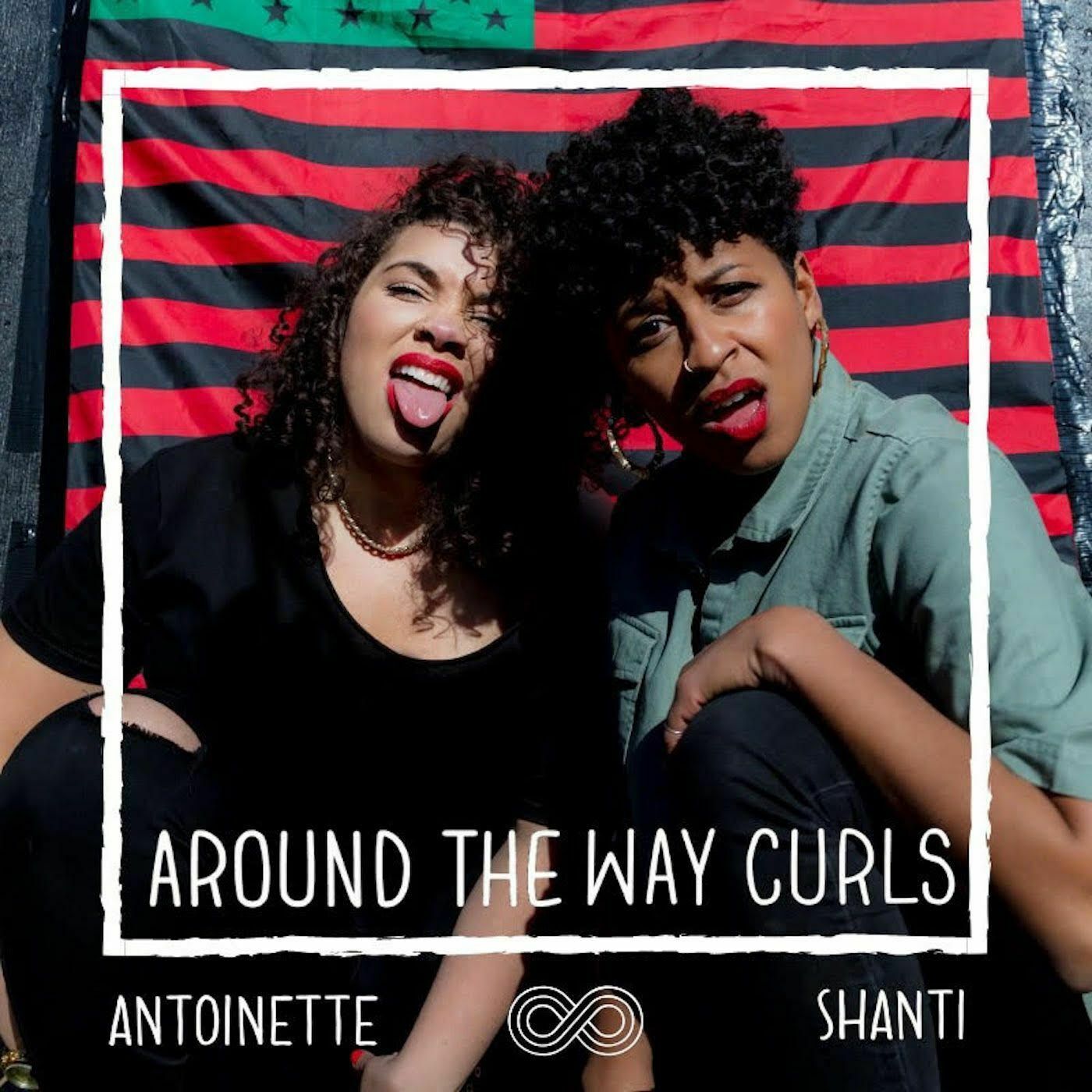
Around The Way Curls
Antoinette Lee & Shanti Mayers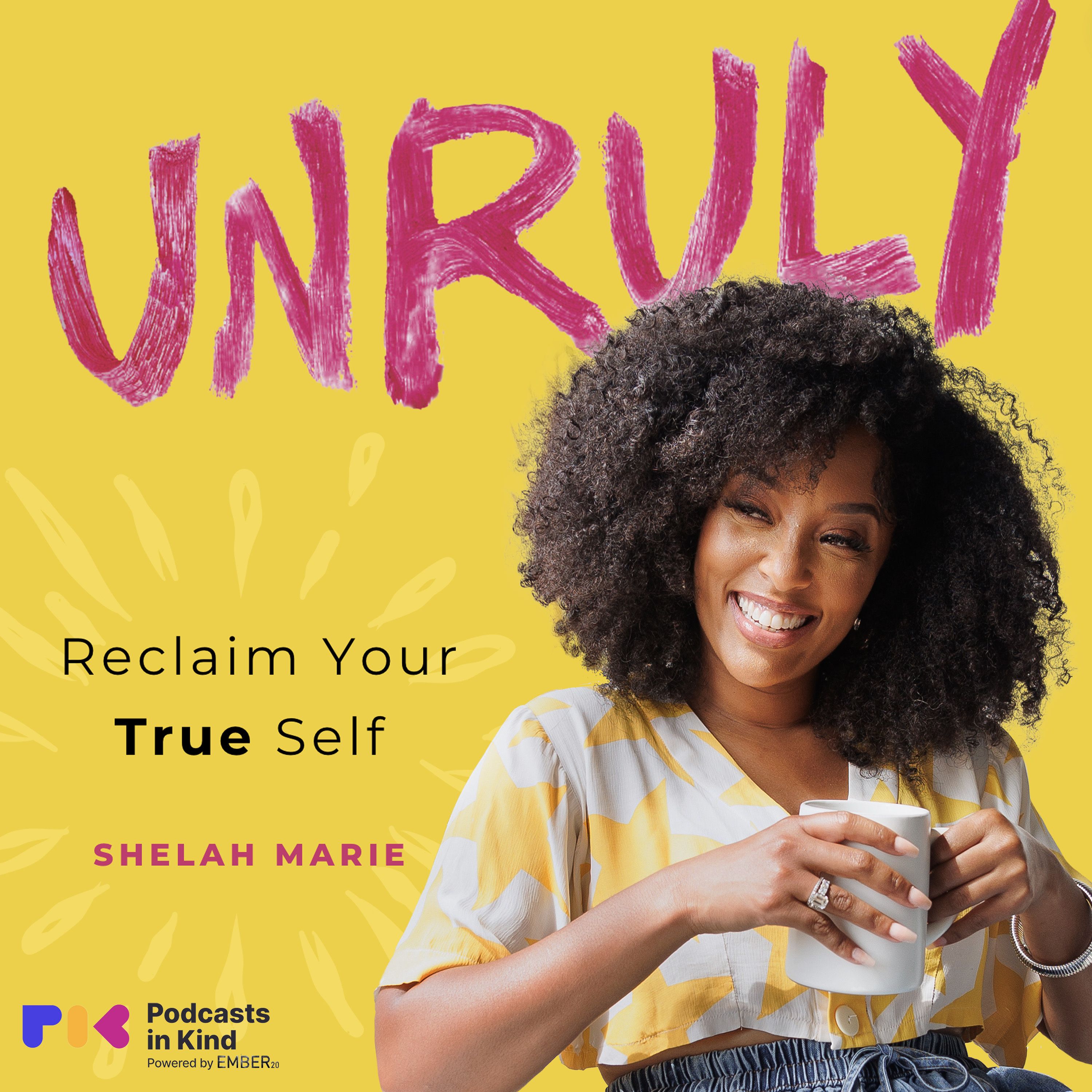
UNRULY WITH SHELAH MARIE
UNRULY WITH SHELAH MARIE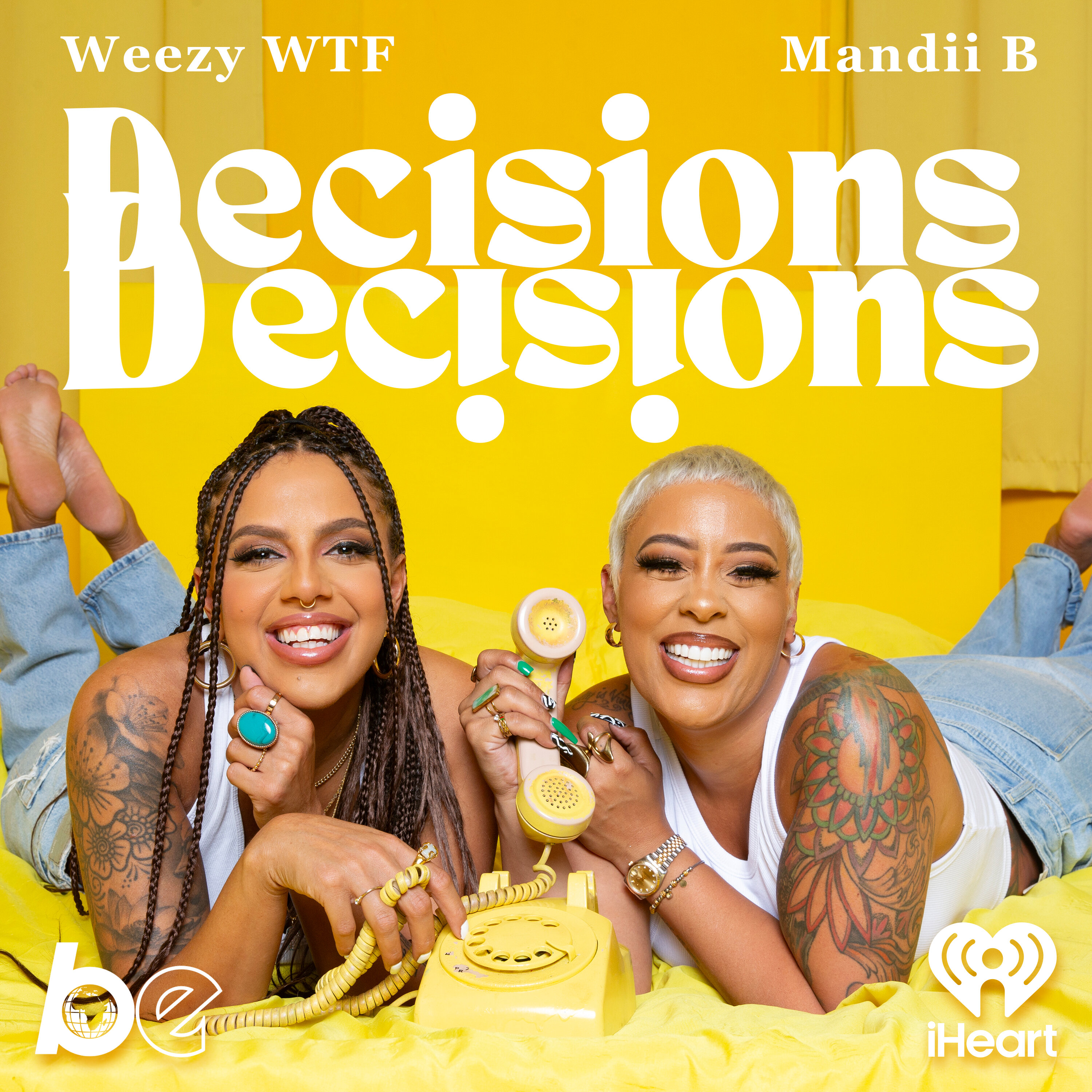
Decisions, Decisions
The Black Effect and iHeartPodcasts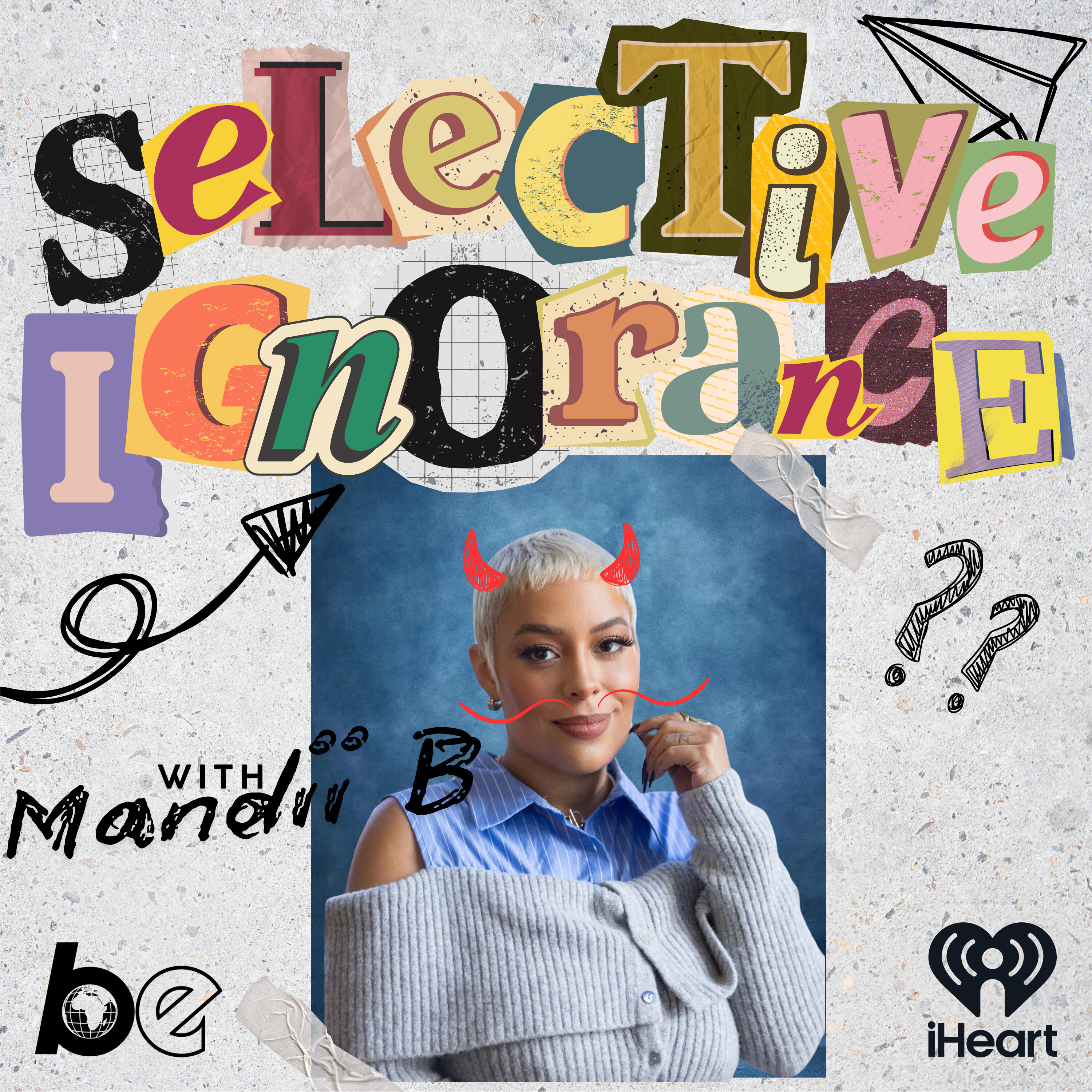
Selective Ignorance with Mandii B
The Black Effect and iHeartPodcasts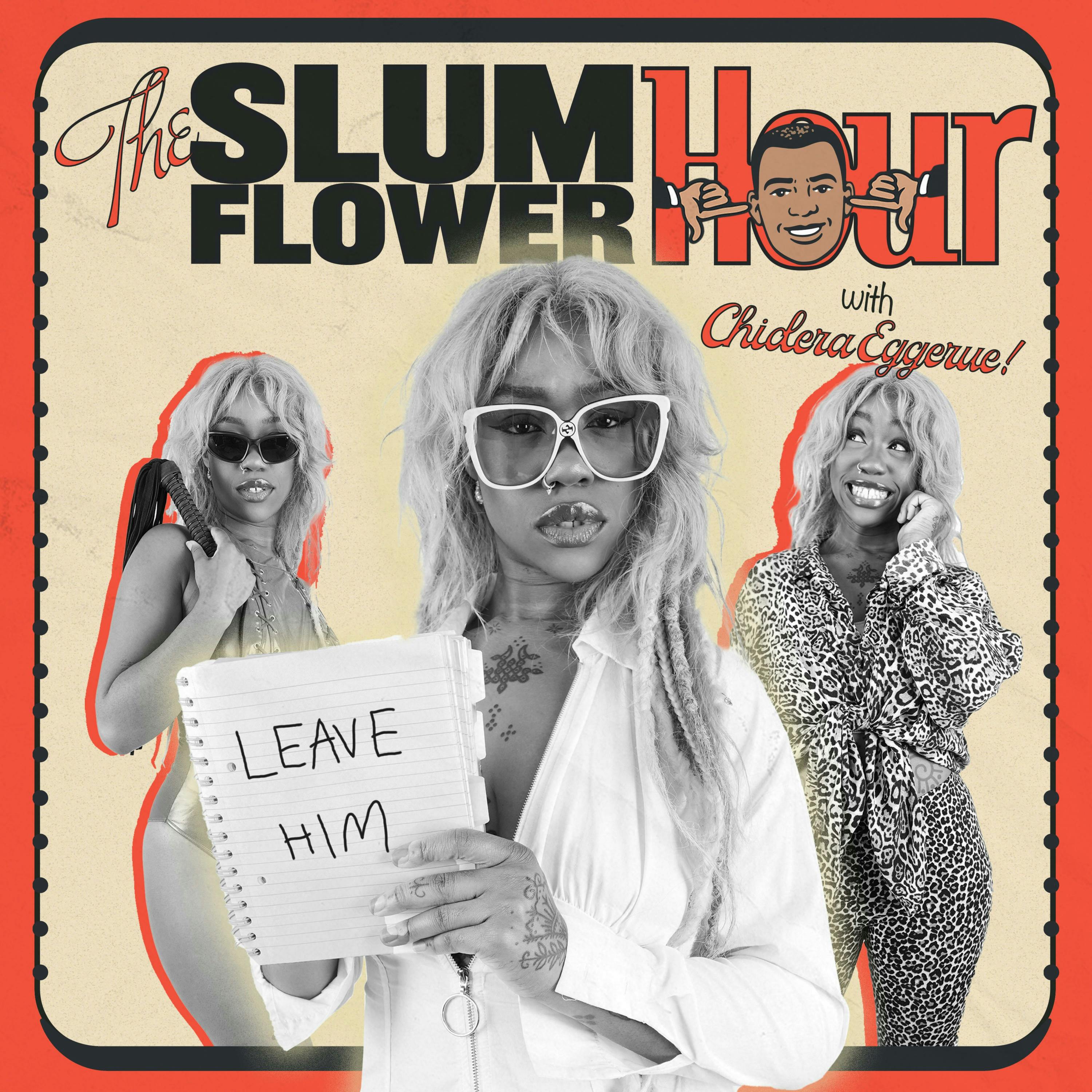
The Slumflower Hour
Chidera Eggerue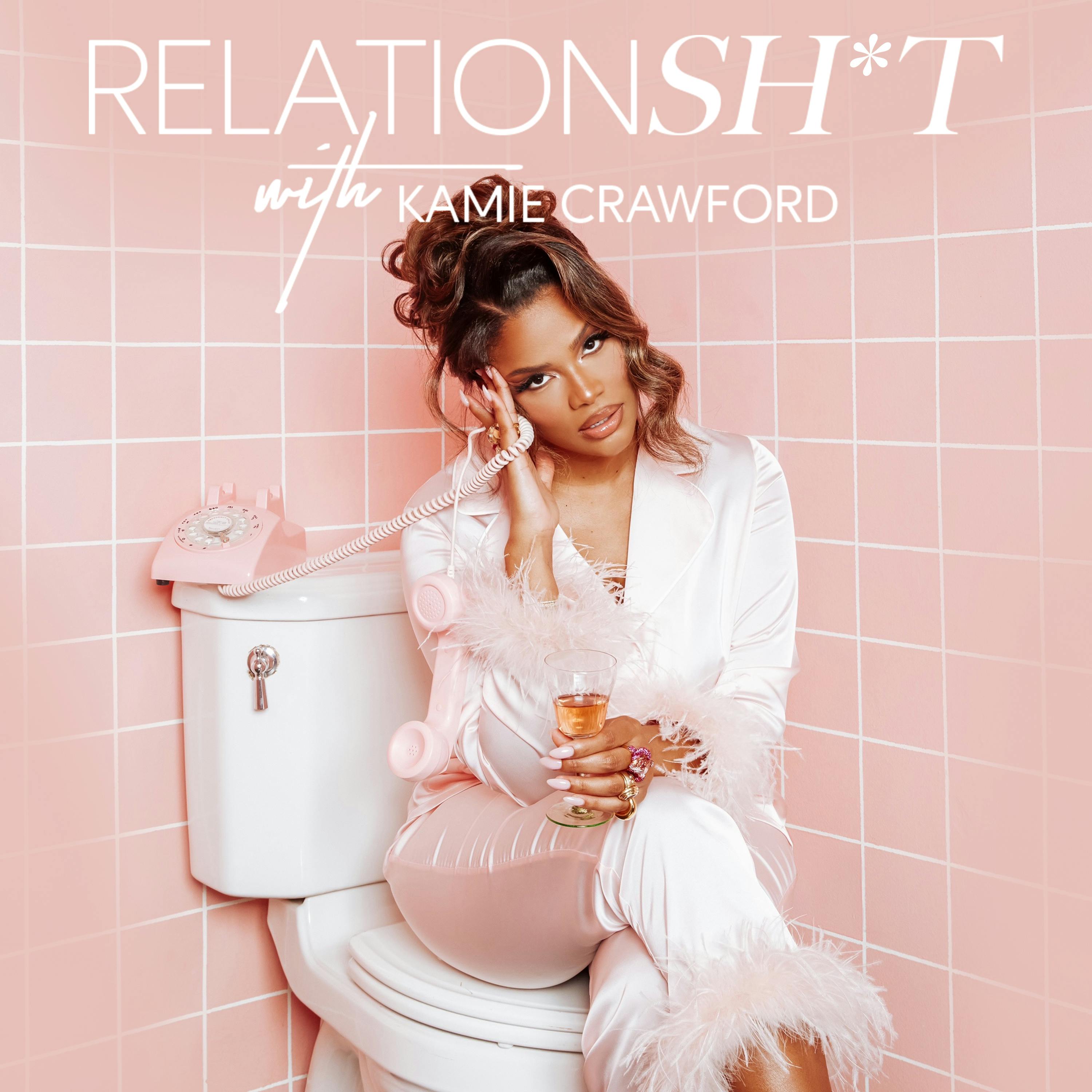
Relationsh*t with Kamie Crawford
Kamie Crawford
Good Moms Bad Choices
The Black Effect and iHeartPodcasts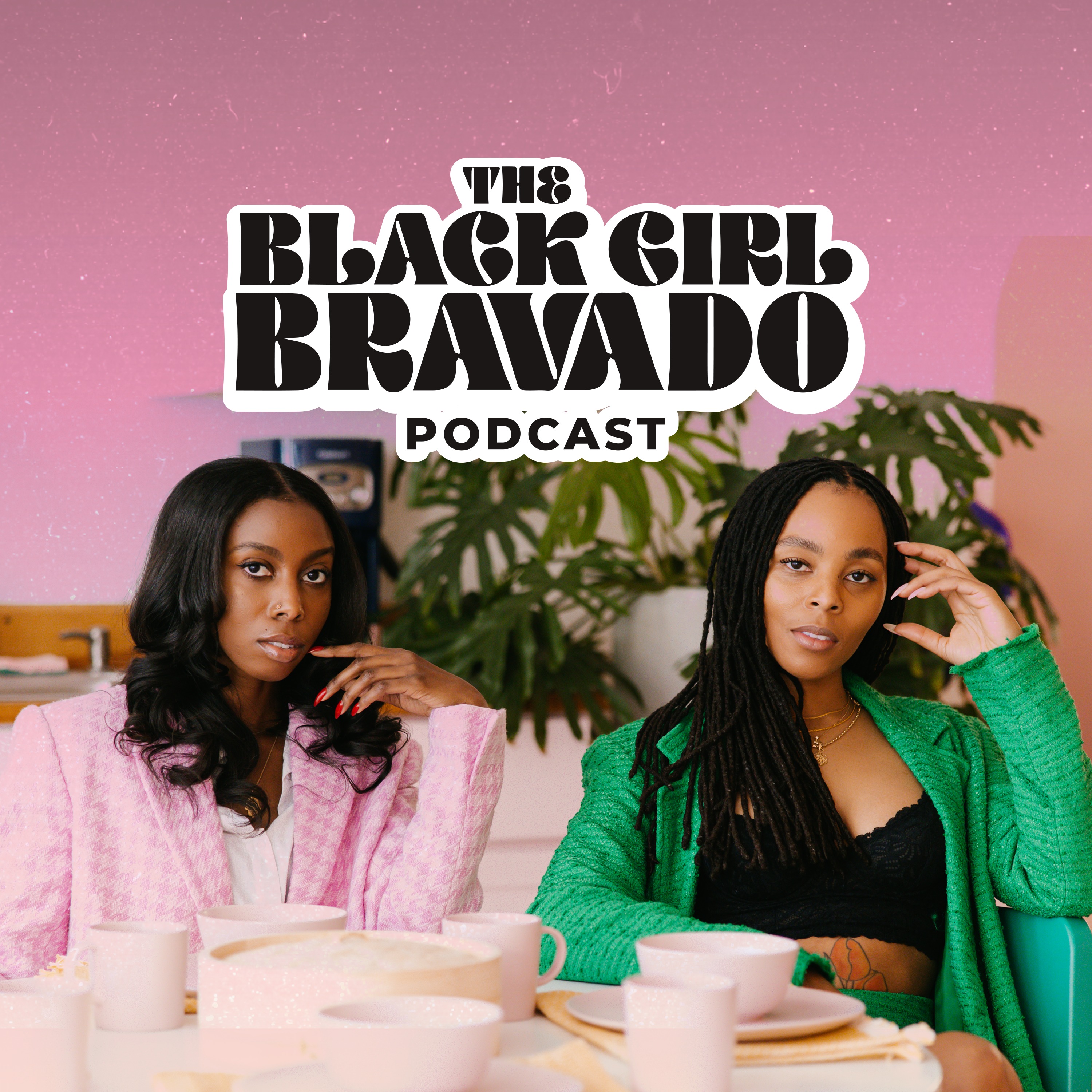
The Black Girl Bravado
Black Girl Bravado
Slay Girl Slay
Ashley Leggs
She's So Lucky
She's So Lucky
SpeakEZ Black Renaissance Podcast
Qadry Harris, M. Div.
Bobo's Void
Bobo, Donavon and MangoUpstream
Upstream
Caribbean Mystics
SpectreVision Radio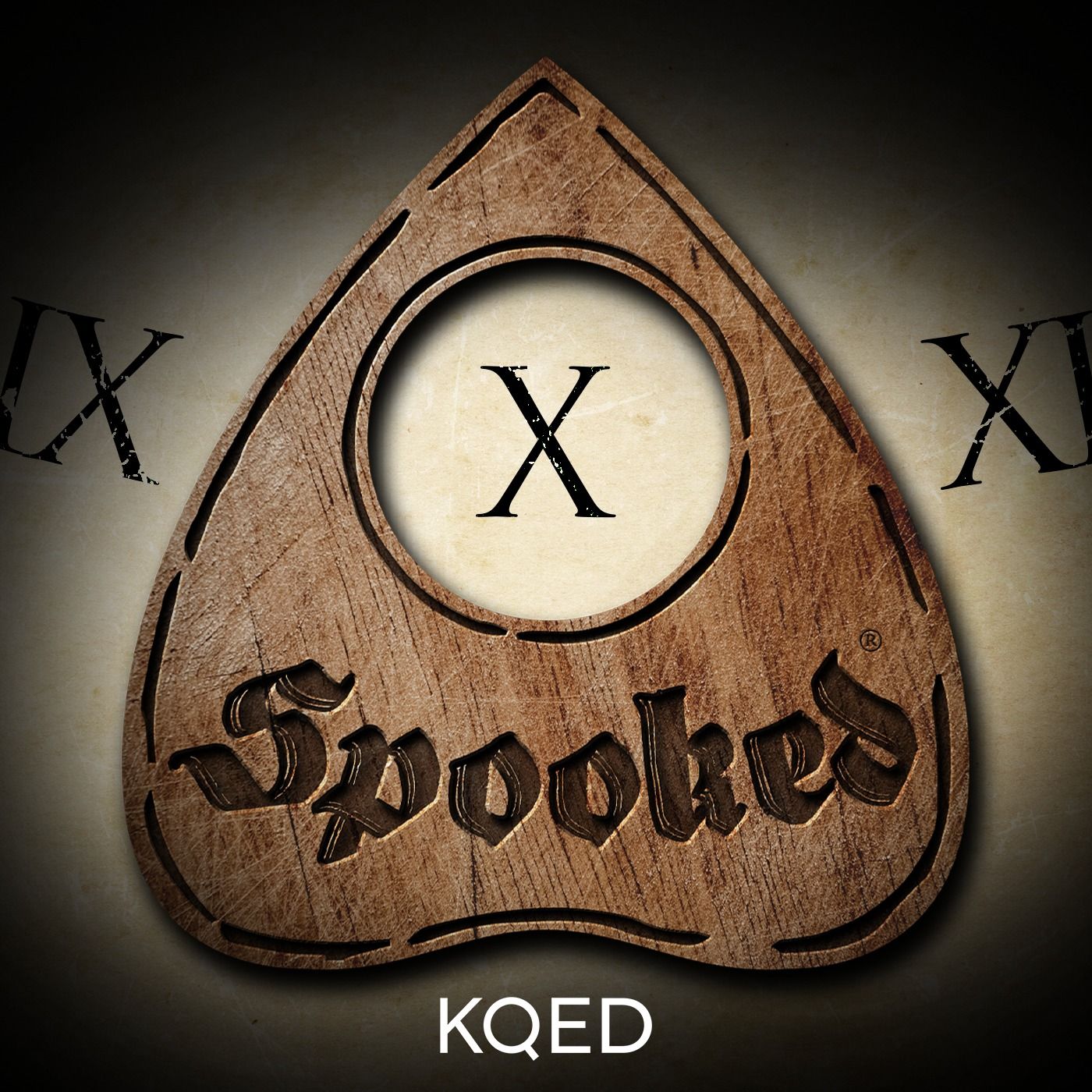
Spooked
KQED and Snap Studios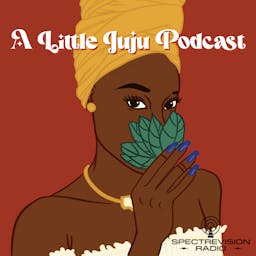
A Little Juju Podcast
SpectreVision Radio
Magic in the United States
Magic in the United States
Sensual Faith Podcast with Lyvonne Briggs
Lyvonne Briggs
Our Ancestors Were Messy
Nichole Hill
CultureCon Uncut
Spotify Studios
Hold For Maintenance
Hold For Maintenance

